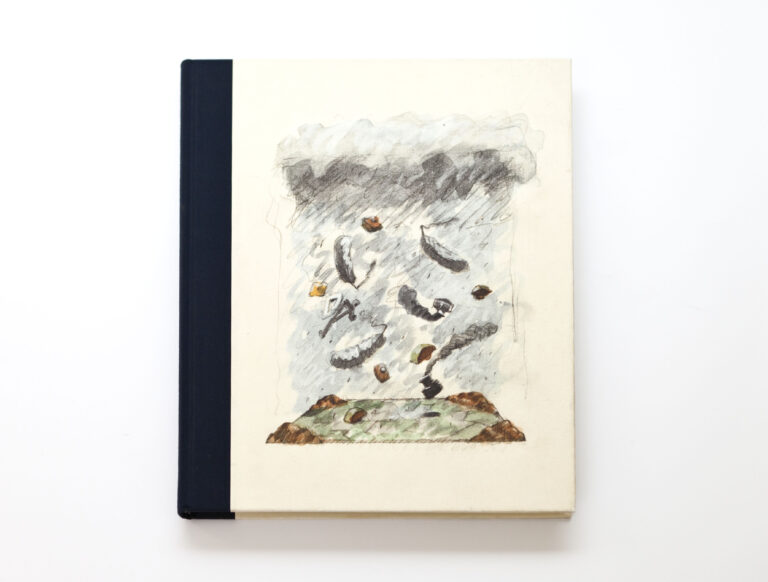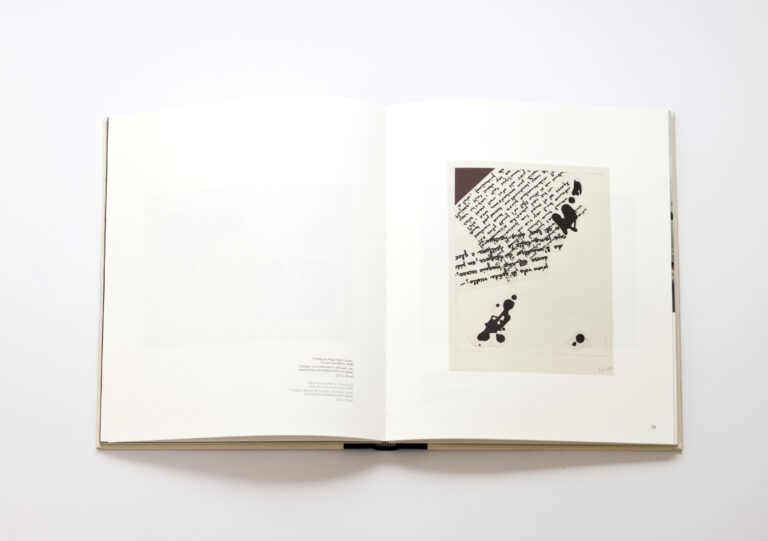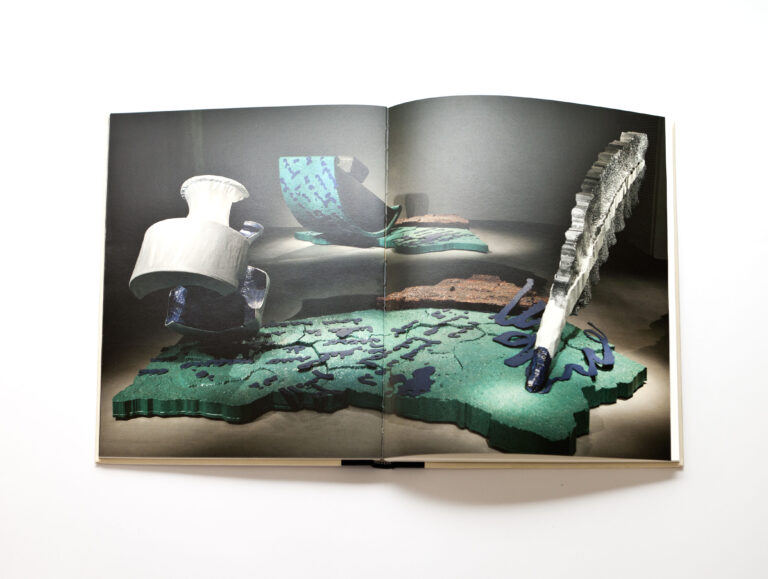Claes Oldenburg & Coosje van Bruggen. The European Desktop



This catalogue contains images from The European Desktop series, which reflect on the false optimism that reigned in Europe following the Second World War. The exhibition was held at Ivorypress from 16 February to 17 April. It also includes extensive biographies of both artists, as well as texts by Richard Cork (writer and art critic) and Ida Gianelli (curator). The European Desktop exhibition was made possible thanks to the generosity of Claes Oldenburg, who was determined to re-explore a work which he and his deceased wife, Coosje van Bruggen, had carried out together in 1990. Van Bruggen’s interest had been piqued by a headline in the International Herald Tribune for an article entitled “Undoing Yalta: 45 years later, a new Europe”. This unqualified optimism became the inspiration for The European Desktop, a landscape ravaged by a war between desktop items.
The work consists of a series of sculptures, a destroyed desk protector, a quill pen, an inkpot, a blotter and scales for letters, all of which appear to have fallen out of the sky and which are now languishing like forgotten victims of another period. The European Desktop is a master work of historical skirmishes over national boundaries and the displacement of European cultures. Oldenburg and Van Bruggen appear to be declaring that time is never passive and achieves success only when it transforms memories into relics. The drama, political or otherwise, has been unpacked and is gradually disappearing. All that remains being a desolate plain littered with abandoned objects.
The European Desktop is the third and final work in a series of theatrical installations arising from a collaboration between Oldenburg and Van Bruggen with architect Frank Gehry for the 1985 Venice Biennale, entitled Il Corso del Coltello (The Course of the Knife). The first two works in the series are The Haunted House and From the Entropic Library. All three pieces use history as a source of material and are conceptually set against a strange European backdrop. Oldenburg recognised the importance of presenting this work now, in view of the recent entry into force of the Lisbon Treaty; as a result, The European Desktop seems to be imbued with a strangely prophetic spirit.
Edited by Elena Ochoa Foster.
